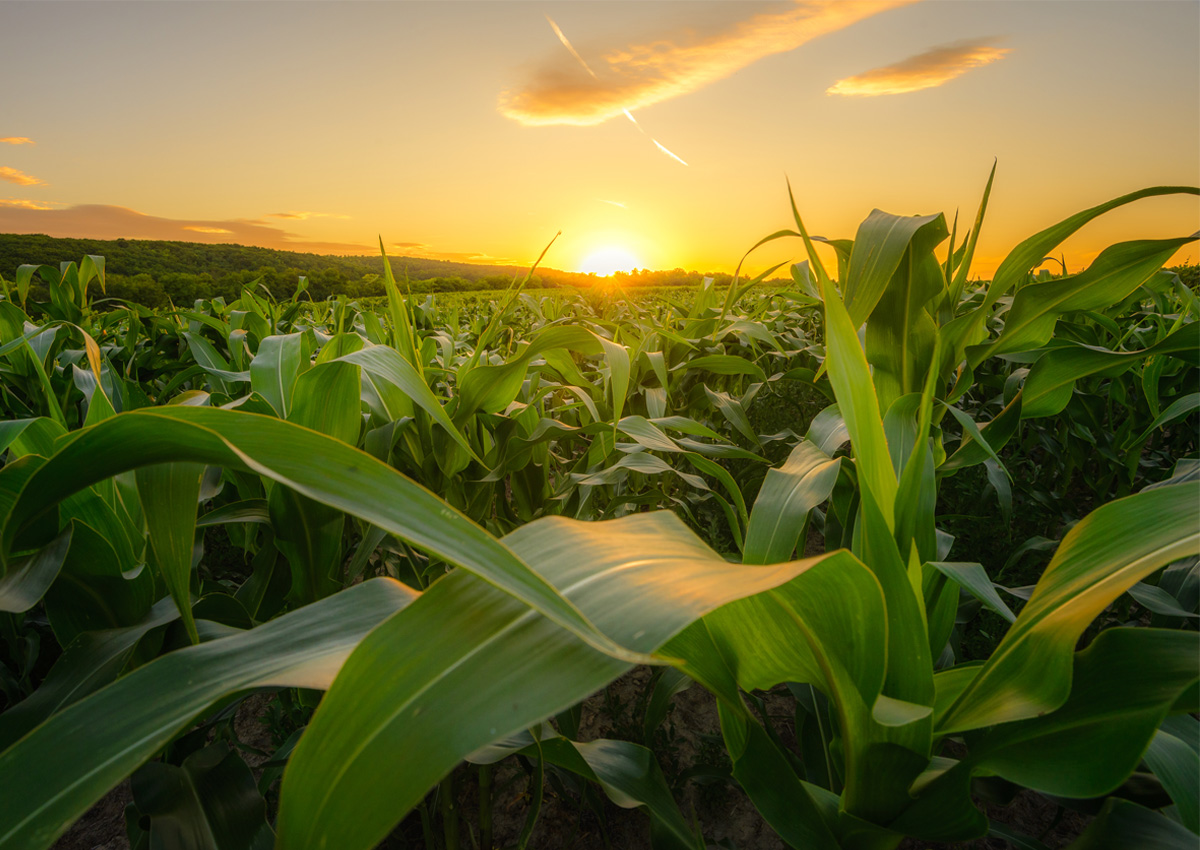
Global Climate Change Impact on Maize and Wheat Expected Within 10 Years, NASA Study Finds
November 3, 2021| |
A study conducted by NASA and published in Nature Food predicts that the production of maize and wheat will be affected by climate change as early as 2030 under a high greenhouse gas emissions scenario.
The study reveals that maize crop yields are projected to decline 24%, while wheat could potentially see growth of about 17%. Using two advanced climate and agricultural models, the study found that the change in yields is due to projected increases in temperature, shifts in rainfall patterns, and elevated surface carbon dioxide concentrations from human-caused greenhouse gas emissions. These changes could make it more difficult to grow maize, but could expand wheat's growing range.
The team's projections also showed soybean and rice yields will decline in some regions. For maize and wheat, the climate effect was much clearer, with most of the model results pointing in the same direction. Maize is produced in countries nearer the equator. North and Central America, West Africa, Central Asia, Brazil, and China will potentially see their maize yields decline in the coming years as average temperatures rise across these regions. Wheat, which grows best in temperate climates, may see a broader area where it can be grown as temperatures rise, including the Northern United States and Canada, North China Plains, Central Asia, Southern Australia, and East Africa.
For more details, read the news article from NASA.
| |
You might also like:
- Research Reveals Climate Change Threatens One-Third of Global Food Production
- Study Reveals Climate Change is Already Affecting Global Food Production
- Pocket K No. 43: Biotechnology and Climate Change
Biotech Updates is a weekly newsletter of ISAAA, a not-for-profit organization. It is distributed for free to over 22,000 subscribers worldwide to inform them about the key developments in biosciences, especially in biotechnology. Your support will help us in our mission to feed the world with knowledge. You can help by donating as little as $10.
-
See more articles:
-
News from Around the World
- Global Climate Change Impact on Maize and Wheat Expected Within 10 Years, NASA Study Finds
- OFAB-Kenya Fetes Top Journalists in Science Media Awards
- USDA ARS Scientists Genetically Engineer Ever-Flowering Fruit to Feed Astronauts
- Study Confirms Effectiveness of Transgenic Coffee Against CBB
- Researchers Uncover "Genetic Goldmine" Allowing Plants to Live in Extreme Environment in the Atacama Desert
- Filipino Farmers Disagree on Banning of Biotech Crops
- 4th Asian Short Course on Agri-biotech, Biosafety Regulation, and Communication (ASCA2021)
- Food Futures: Commercialization of Gene Edited Crops in Asia and Australia
- Scientists Discover How Legumes Give Oxygen to Symbiotic Bacteria in their Roots
- European Scientists Call For Better Legislation on Genome-Edited Crops
-
Plant
- Researchers Venture into Gene Editing Research to Produce Improved Strawberries
- Heat-Moisture Treatment Improves Starch Content of Healthy Rice
-
Read the latest: - Biotech Updates (November 12, 2025)
- Gene Editing Supplement (October 29, 2025)
- Gene Drive Supplement (February 22, 2023)
-
Subscribe to BU: - Share
- Tweet

